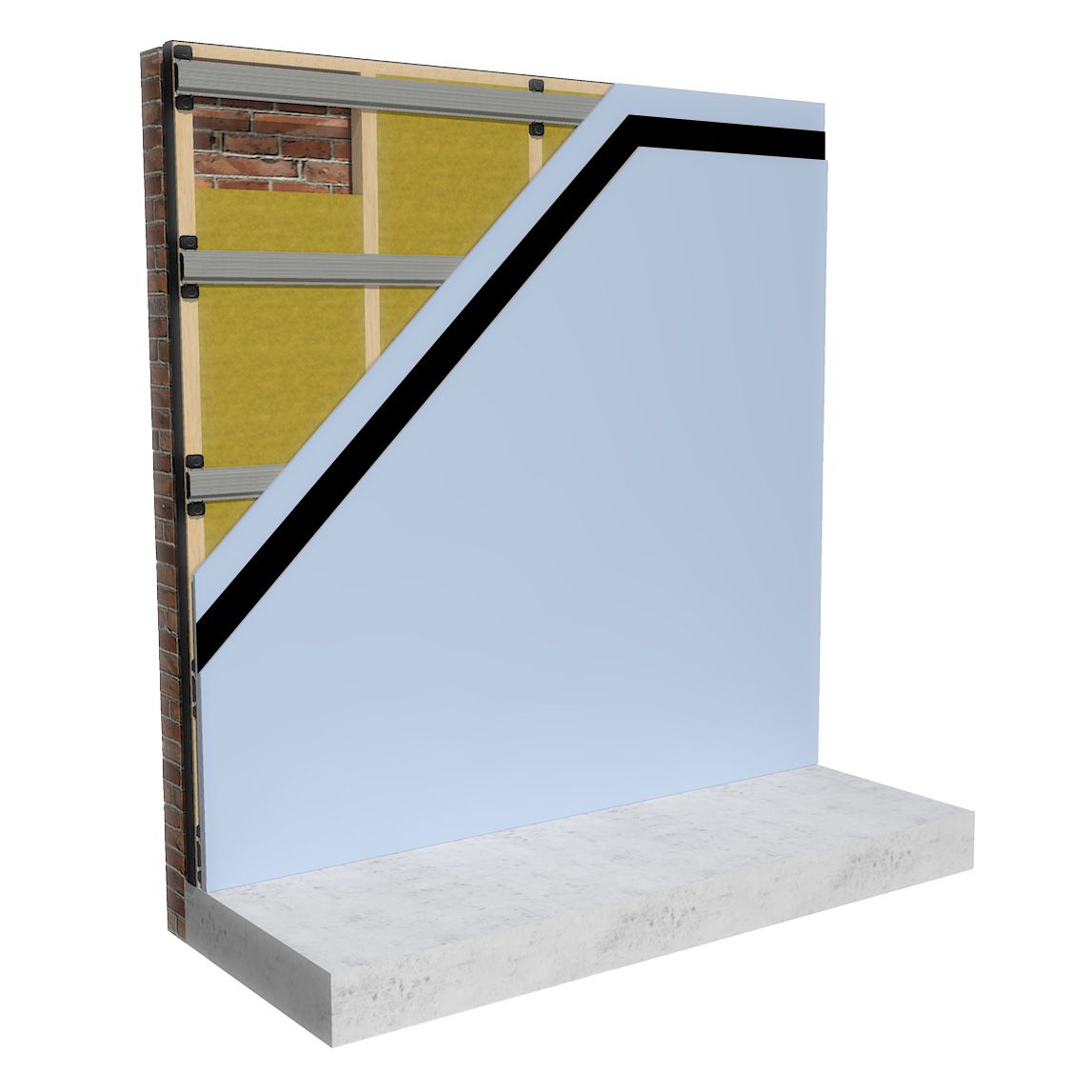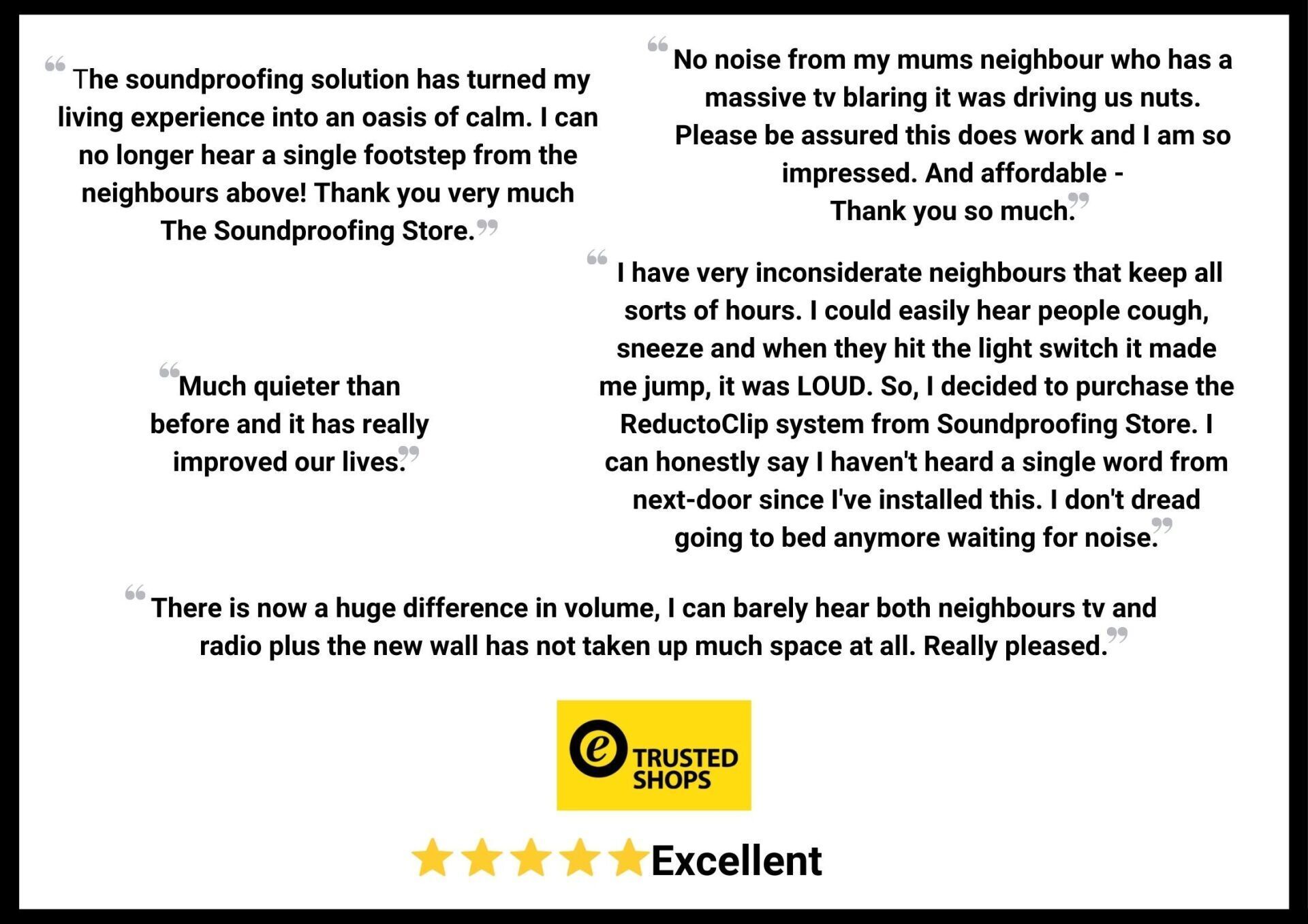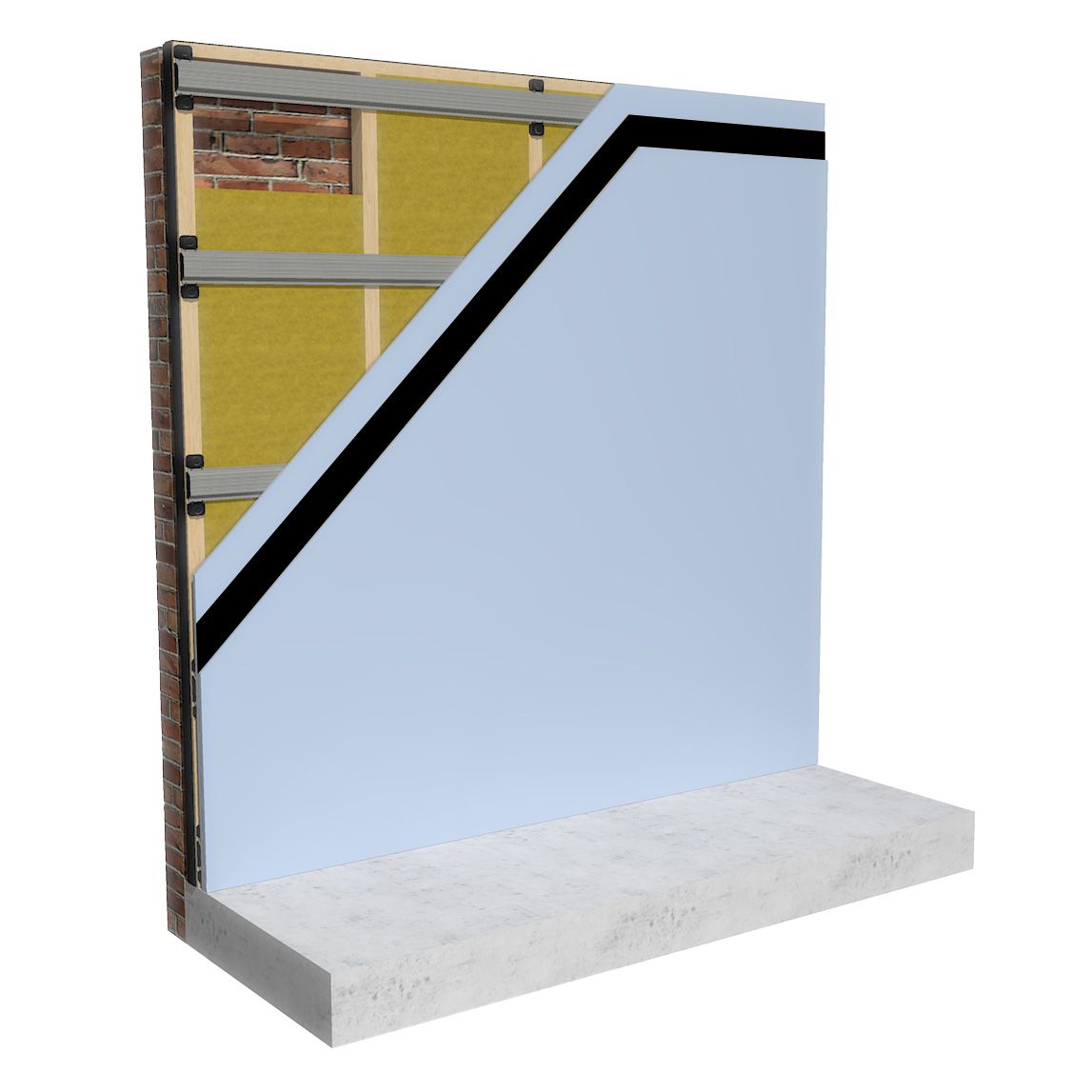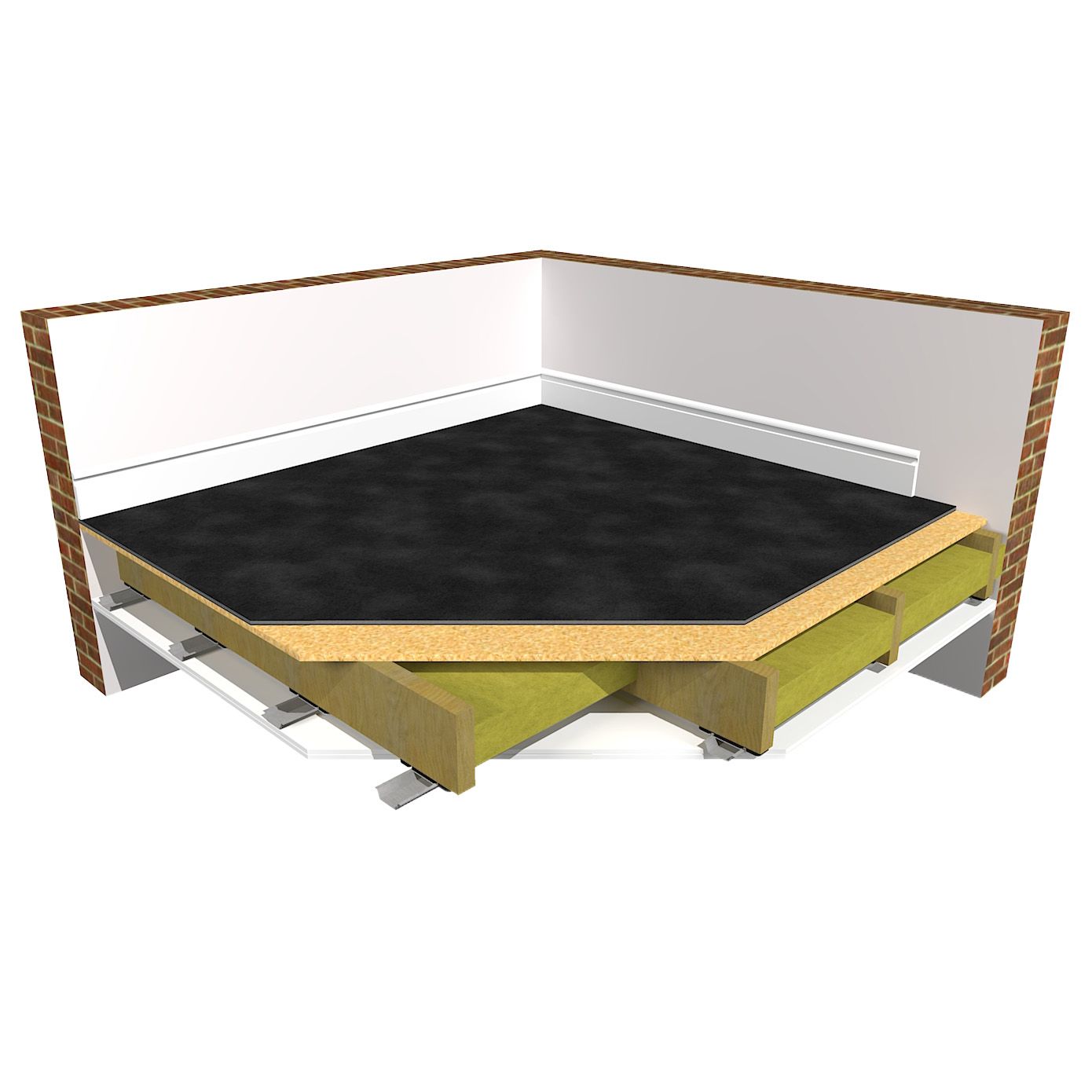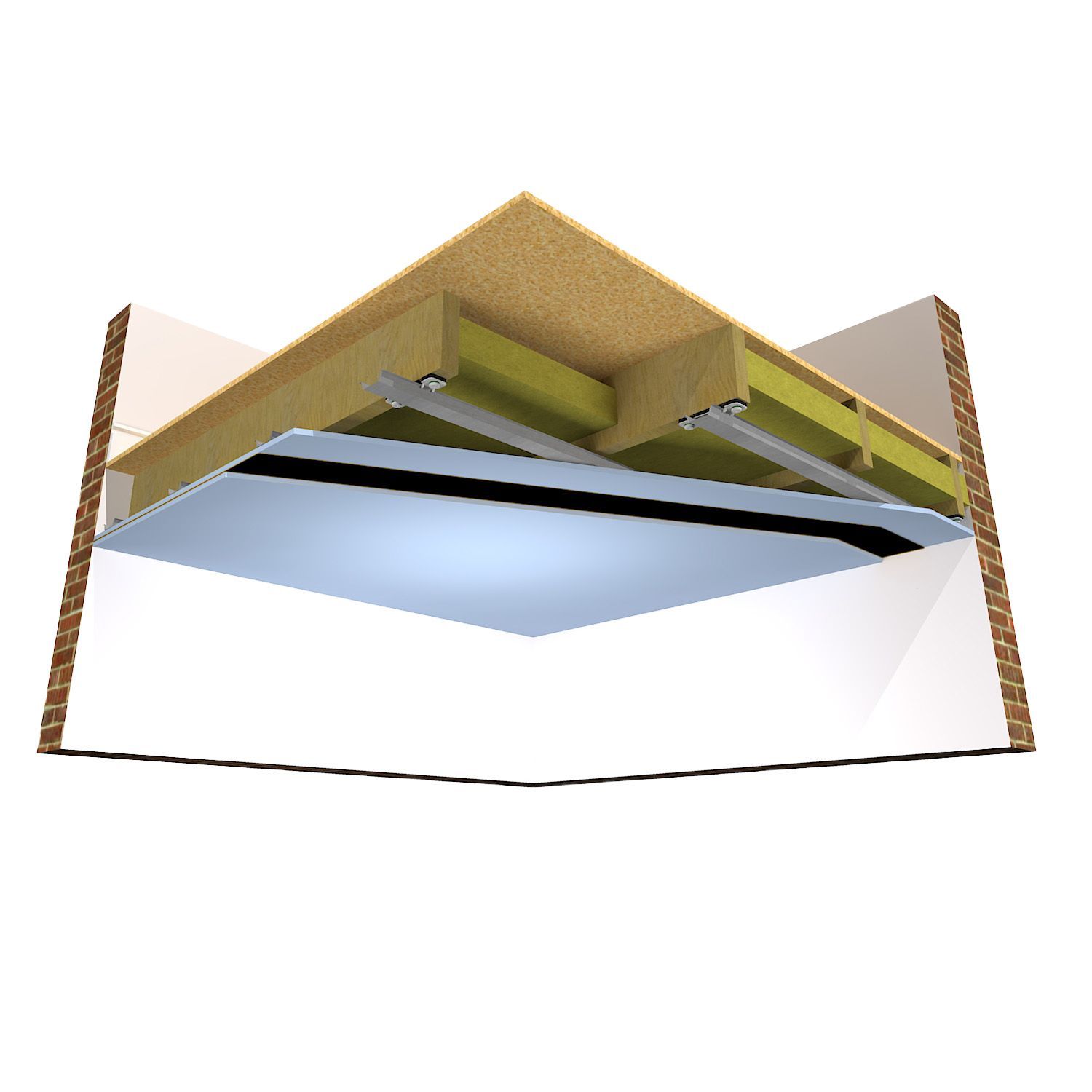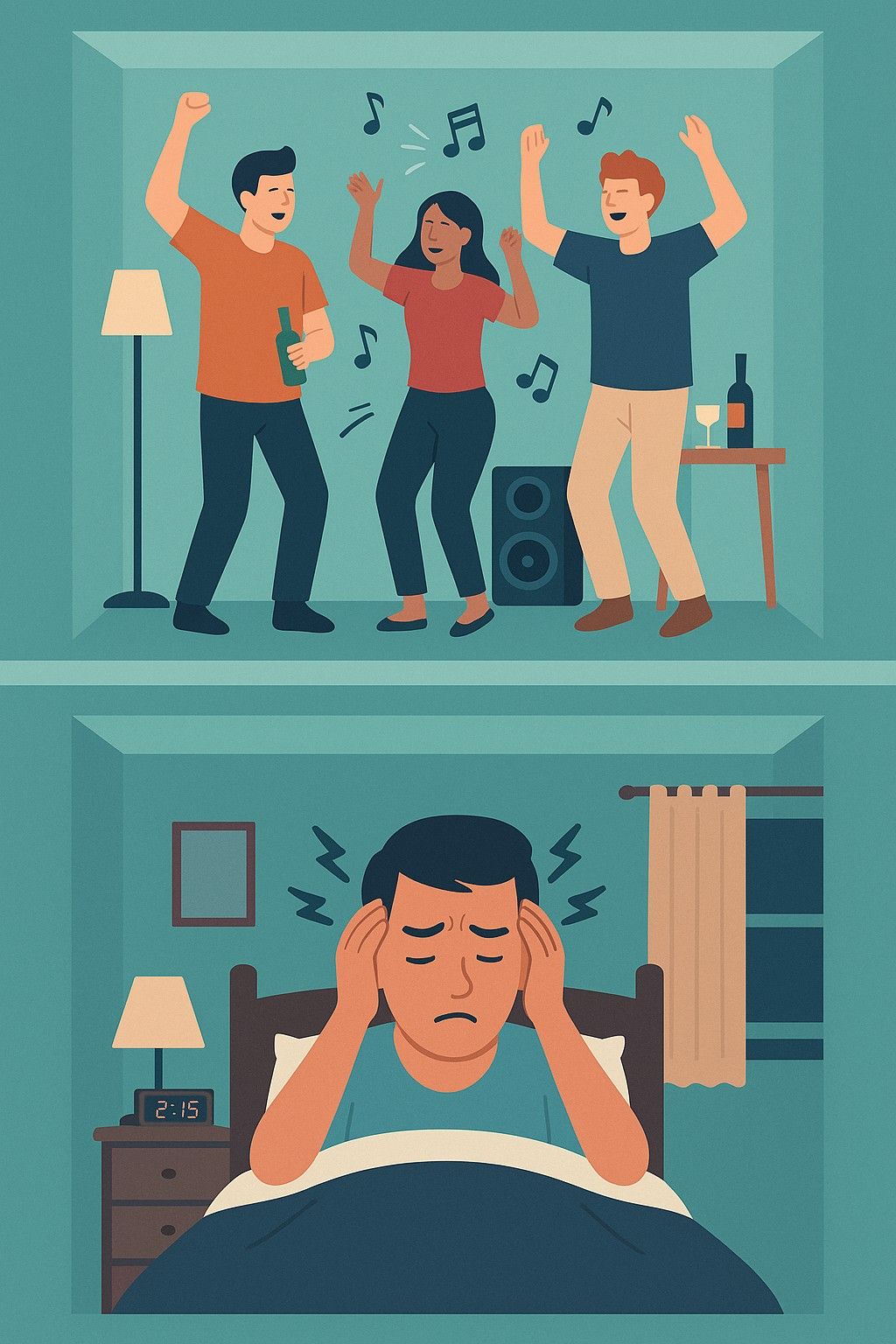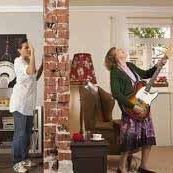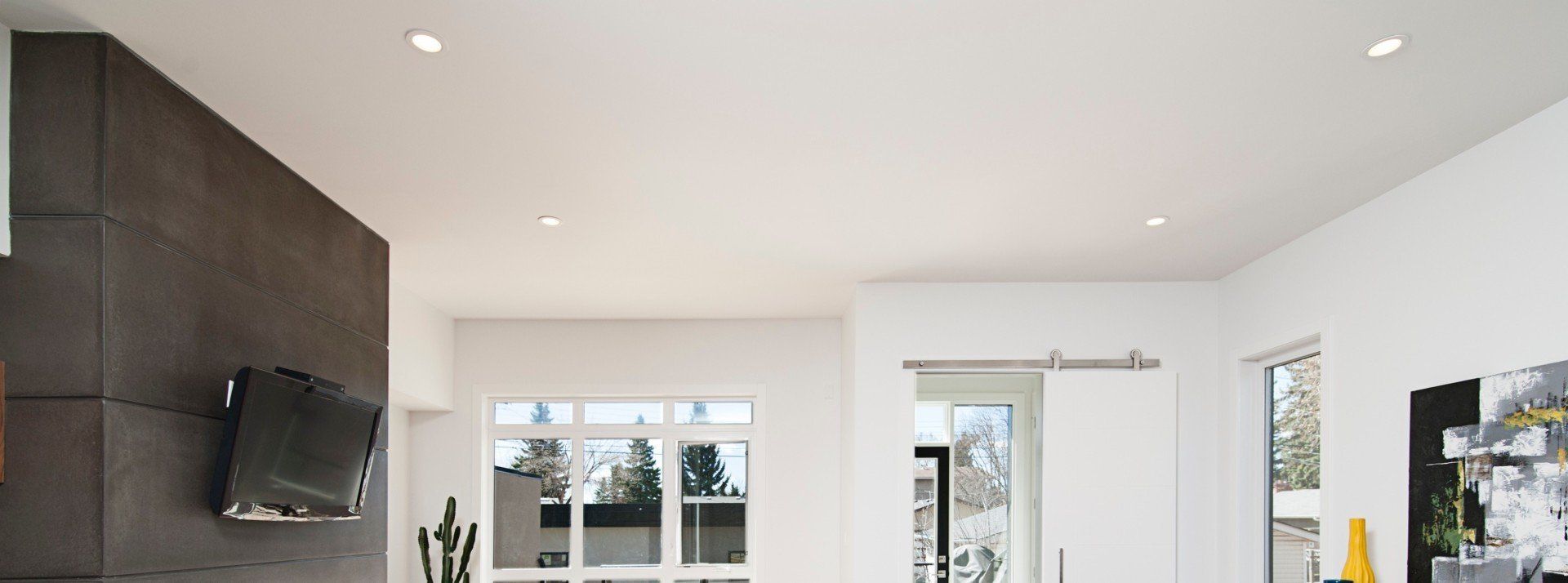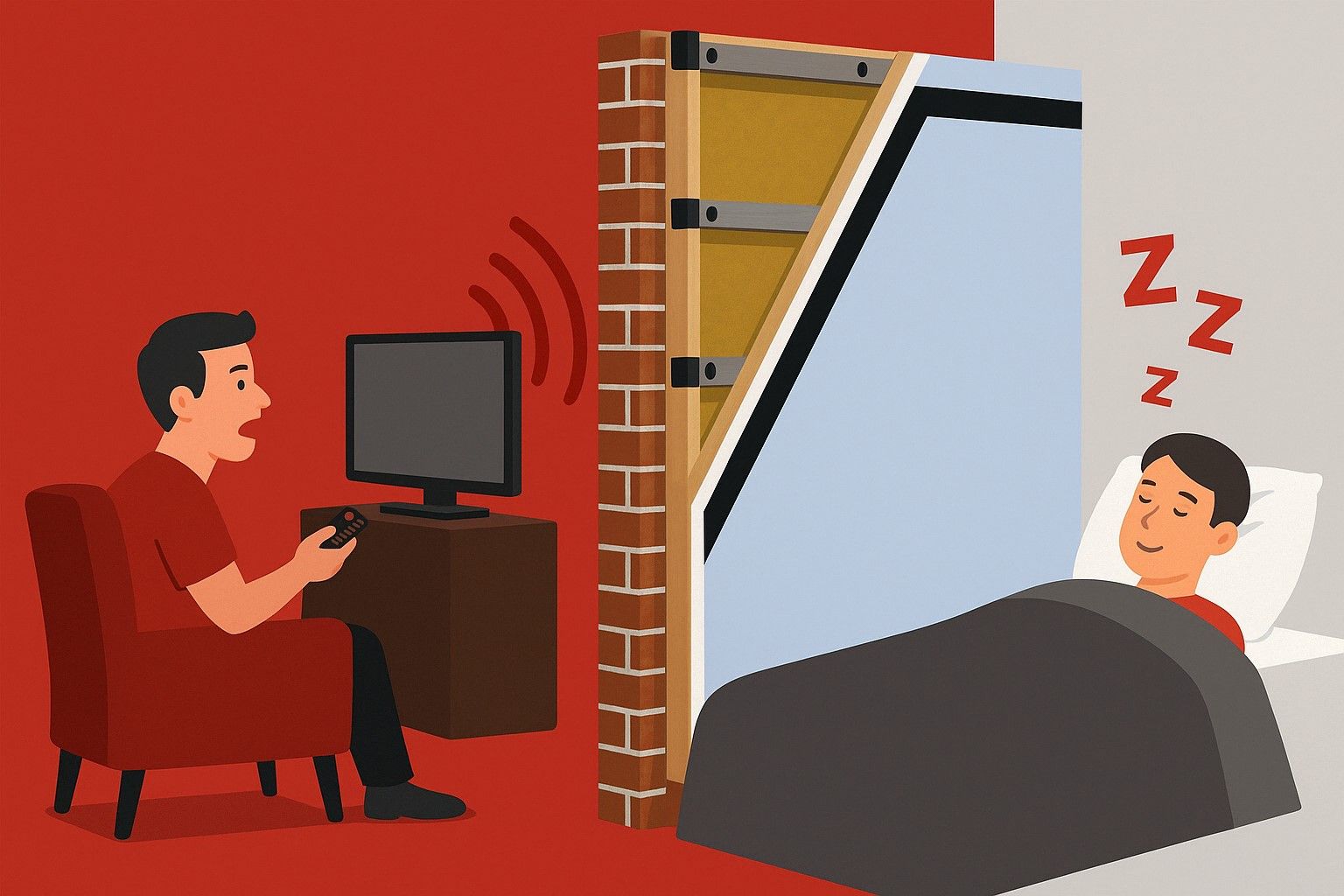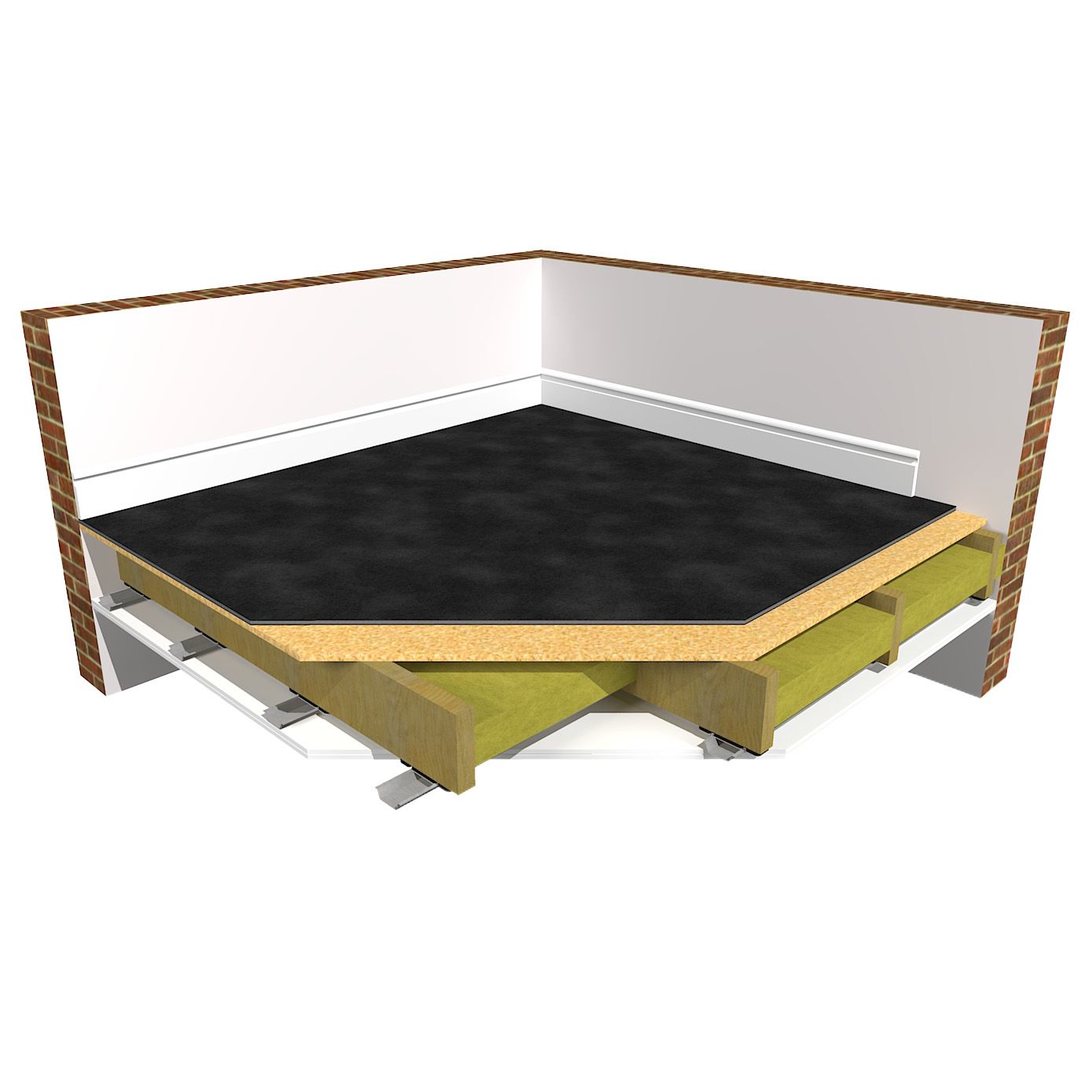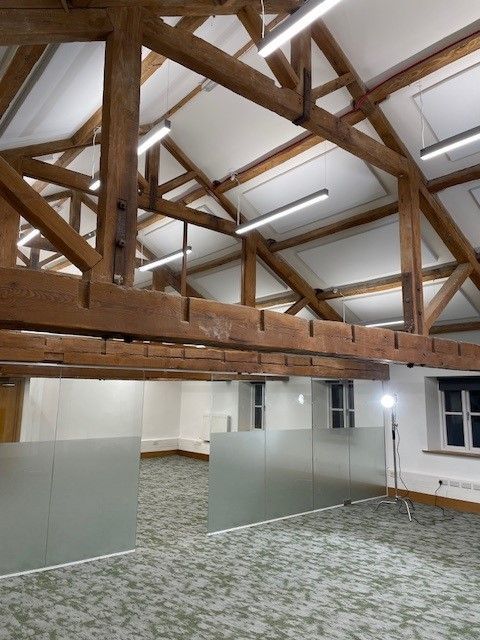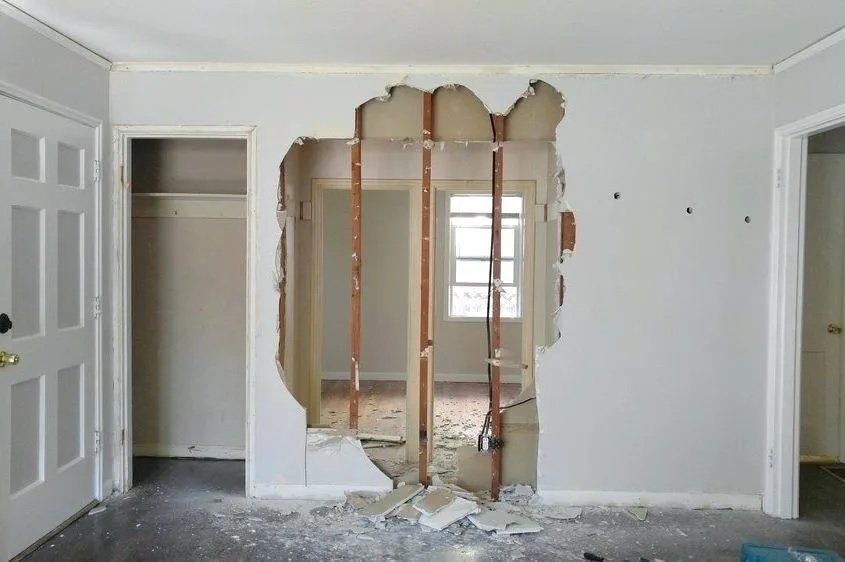Does soundproofing really work?
Does soundproofing actually work? Yes, absolutely soundproofing works if the correct acoustic solution is used. The correct sound insulation depends on the property, the level and type of noise being heard and ensuring any soundproofing is installed correctly.
Soundproofing is an excellent solution if you are experiencing unwanted noise from noisy neighbours. This unwanted noise could be coming through your walls, floors or ceilings, or being heard through a combination of all three.
Acoustic panels are also effective at soundproofing between internal walls to help limit unwanted noise passing through rooms within the same property.
What is the alternative to soundproofing?
Lionel Messi reportedly bought his neighbours house when he experienced his own noisy neighbours issue! However, back to the real world and if buying your neighbours home, or move to a detached property in a remote location, however if moving house yourself isn't an option, This article goes on to explain the best ways to soundproof your home with proven solutions.
The expert team at The Soundproofing Store advise and speak to hundreds of customers every week on the correct soundproofing solution for their individual noise issues. There are also those customers who get in touch, who have unfortunately had soundproofing (the term is used loosely) installed elsewhere and it hasn't worked. They then need to speak to an expert to ask advice on how to rectify what they have had done previously. The main reasons for the disappointing performance they are experiencing is usually because:
- What has been added to their wall, floor or ceiling isn't the right soundproofing material
- The soundproofing solution used isn't high enough performing for the noise needing to be blocked
- The soundproofing used doesn't perform well enough against the type of noise. e.g. airborne or impact or a combination of both
- The soundproofing hasn't been installed correctly
Our advice to ensure soundproofing does work is to always speak to an expert. 'Do it once and do it right.' Quick fixes don't exist when it comes to soundproofing and more often than not, starting from scratch is usually the best way to rectify any problems, which ends up costing more in the long run.
What is soundproofing and how does it work?
Soundproofing is blocking the transference of sound from one room to another. There are three main scientific principles of effective soundproofing:
- Improve the mass of the wall, floor or ceiling to help limit airborne noise. Soundproofing materials are solid and heavy and need to be dense enough to stop airborne noise from leaving or entering a room.
- Improve the mass of the wall by using a combination of different high density materials. This is because different types of materials perform better for different sound frequencies. Simply using more of the same high mass material will not be as effective as using different combinations of high mass materials.
- Improve the ability of the wall, floor or ceiling to absorb sound energy and vibrations. The highest performing soundproofing solutions will always include a dampening, or decoupling effect. Without this any addition of mass will have little benefit.
What parts of a house can be soundproofed?
It is possible to soundproof any surface within the home - walls, floors and ceilings. Often it can be very obvious as to where the unwanted noise is coming from. However, if you are unsure, then the best tip is to do a simple ear test. When you can hear the noise, listen to the wall, or floor and and check where the noise can be heard.
Differences between soundproofing and sound absorption
As mentioned, soundproofing is stopping the transference of noise from entering and leaving a structure. Where as sound absorption is not soundproofing. Sound absorption will only reduces echo and reverberation within a room and will not block noise. Sound absorption materials, such as acoustic panels are added on walls or ceilings to absorb sound energy. Perfect for noisy communal areas such as offices, schools, restaurants and meeting rooms to reduce echo and sound reverberation.

Below is an example of sound absorption in situ. The before and after picture of ProSound™ Acoustic Ceiling baffles, which have been added to the ceiling of a busy restaurant to reduce the echo and reverberation. This results in a much more pleasant dining experience for customers, especially when there are lots of people talking. The acoustic panels help to create a quieter atmosphere in which individuals can talk to each other, be heard and enjoy their dining experience.
Conversely, with soundproofing, once the system has been installed and the wall, ceiling or floor is then redecorated, to look at, there would be absolutely no way of knowing that the soundproofing was even there.
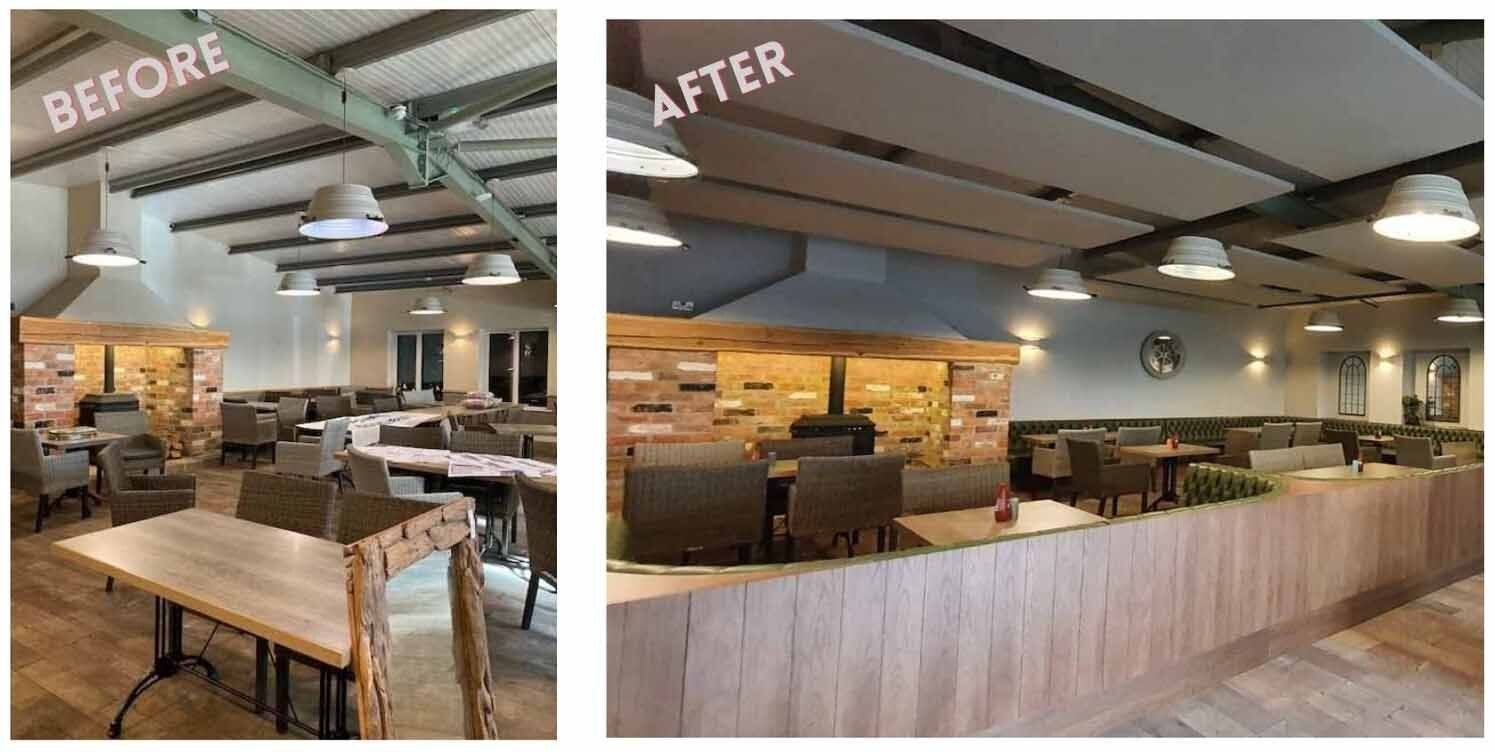
The differences between soundproofing and sound absorption explained
Does soundproofing work both ways?
Yes, soundproofing works both ways. If you are soundproofing your home to stop the unwanted noise from noisy neighbours, then it will also work at blocking any noise from your house from passing into your neighbours property. This is an added benefit by further increasing the privacy of your own home.
Can I install soundproofing myself?
Anyone with good DIY skills will be able to install soundproofing themselves. 80% of customers at The Soundproofing Store install the systems themselves and they are supplied with comprehensive installation guides, videos and our expert team are on hand to answer any questions, prior or during installation. However, due to the soundproofing having a lot of mass, it will be heavy, so the recommendation would be to have two people to lift it. If you don't feel confident installing the soundproofing yourself, then a local tradesperson will have absolutely no difficulty at all installing it.
Top tip: Soundproofing is similar to waterproofing in that any gaps or weaknesses and the sound will find a way to 'leak' through.
Can you soundproof an existing wall?
Yes, absolutely existing walls can be soundproofed effectively. Soundproofing solutions and acoustic insulation can be added to existing walls without any damage or loss of much space. Once the correct acoustic panels are chosen, soundproofing can be installed by a competent DIYer.
Different acoustic solutions are available depending on if the existing wall is a stud or solid wall. However, the main principles of soundproofing still apply: See our wall soundproofing page for more details.
- Improve the ability of the existing wall to absorb unwanted sound energy and vibrations by using acoustic clips such as ReductoClips
- Add mass to the existing wall to help block airborne noise
- Add different materials of high mass
- Combining mass and decoupling or dampening from the original wall will result in the highest soundproofing performance
The 3 best ways to soundproof a solid wall
What are the benefits of soundproofing?
Soundproofing against the unwanted noise from noisy neighbours means being able to regain peace and quiet within your own home. Many customers have their lives turned upside down from the intrusion of unwanted noise in their homes. This can also have health implications such as; increased stress, high blood pressure and sleep disturbance.
Soundproofing also increases your own privacy. You can no longer hear your neighbours, which also means your neighbours can also no longer hear you.
Soundproofing alo has practical and essential benefits. E.g. contractors needing to pass building regulations for the passage of sound. Learn more about passing Part E Building Regulations.
What materials are most commonly used in soundproofing?
As highlighted, the most effective soundproofing solutions use a combination of different materials. Adding more of the same material will have limited benefit to the overall performance of the soundproofing. For soundproofing to work and be successful it is the combination of different materials which increases the overall performance of the acoustic solution.
A key material within soundproofing solutions which works well includes mass loaded vinyl which was originally designed to replace lead in soundproofing. Acoustic grade plasterboard is another material often used to soundproof walls and ceilings, as it is 50% more dense than standard plasterboard. This makes it much more effective at blocking airborne noise due to its increased mass. Another proven material in soundproofing is closed cell foam, which helps with any impact noise and helps to dampen sound vibrations and energy.
To achieve the highest level of soundproofing, decoupling soundproofing from the existing structure will result in the highest possible performance. The ReductoClip is a market leading independent clip system and more information on what makes it so effective and such a successful soundproofing solution is highlighted in the below video:
ReductoClip™ Solution for walls and ceilings - soundproofing that works
SoundMat™ Solutions for floors - soundproofing that works
How to soundproof cheaply?
The Soundproofing Store are an online retailer and as such, prices are completely transparent all year round. Without sales, or seasonal discounts, after all, noisy neighbours are noisy all year round!
The expertise, advice and time customers receive from The Soundproofing Store is unrivalled. As a company we would always advise a solution depending on the individual factors from each customer. Soundproofing is not a one size fits all. Cheap alternatives exist in all walks of life, but when you are dealing with proven solutions and science, then our advice would always be to use a proven and tested system. Short cuts often lead to disappointing results with soundproofing and often end up costing more to rectify.
Do soundproofing hacks work?
Soundproofing hacks such as adding 2 layers of plasterboard, adding soft furnishings to a room, e.g. rugs and carpets, will help with the sound absorption of a room, but won't remotely help with soundproofing. The same goes for so called soundproof wallpaper or paint. The science of soundproofing requires mass to help block sound. No amount of paint or wallpaper is going to come close to blocking unwanted noise travelling through a party wall v's using an approved soundproofing solution.
Does soundproofing work - final checklist
Yes, absolutely soundproofing works. There is no need to live with the stress of unwanted noise from noisy neighbours. Effectively soundproof walls, floors and ceilings by:
- Using a tried and tested soundproofing solution
- Choosing the right soundproofing solution for the right type of noise
- Choosing the right acoustic solution for the level of noise being heard
- Installing the system as specified by the expert
- Not using quick fixes. Soundproofing quick fixes rarely work and more often than not end up costing more to remove and put right
If you are unsure about whether soundproofing will work, always speak to an expert.
Share
"We don’t expect you to become an overnight expert in soundproofing, that’s what we’re here for."
